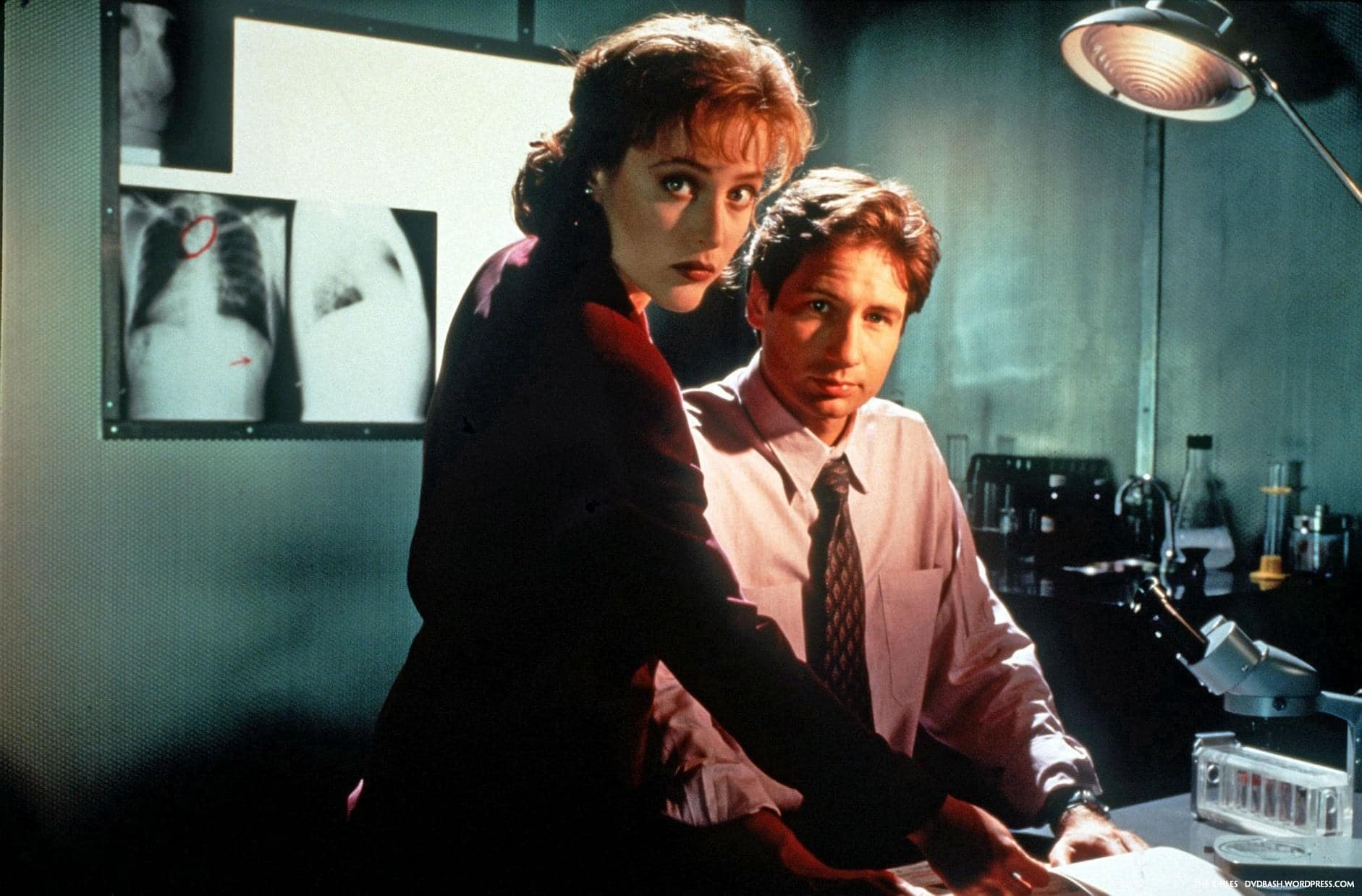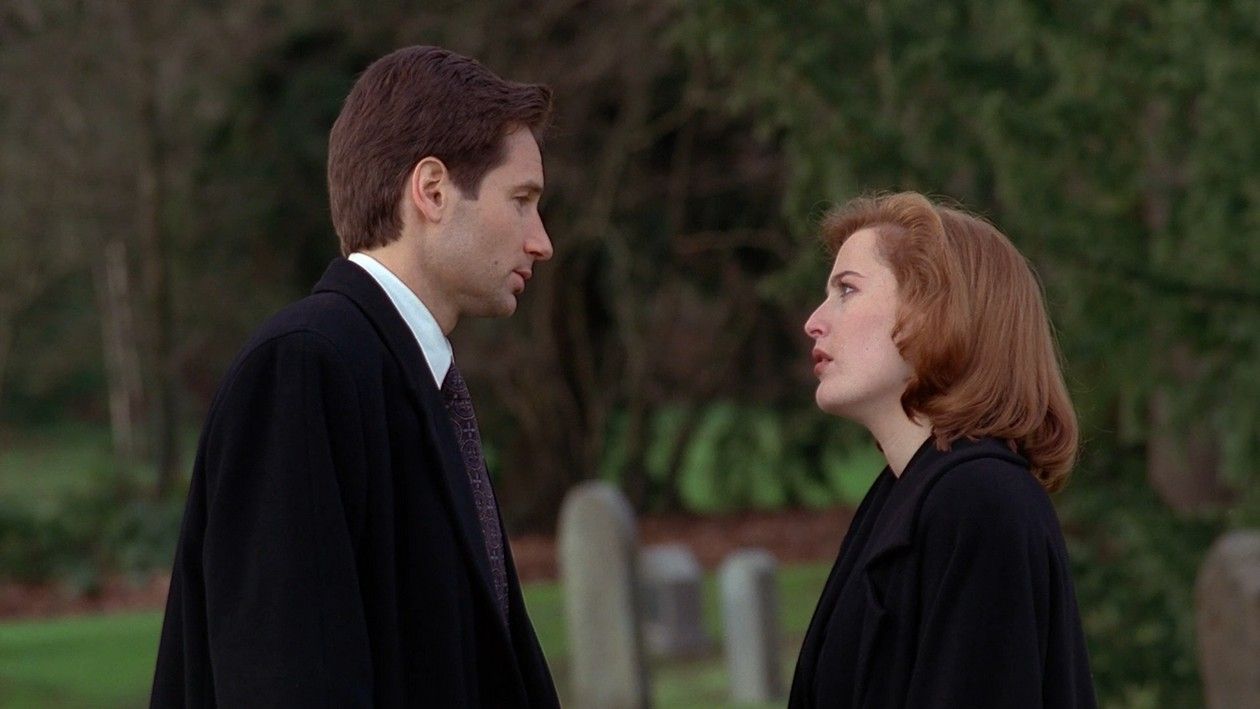Cult SciFi Series: Why was The X-Files so successful?
A cult, a monster-of-the-week style show centering on the FBI's unsolved cases. But why was it so successful?

The X-Files originally aired on television from September 10, 1993, to March 21, 2002. It had a total of 11 seasons. The series was created by Chris Carter, that served as the main writer and executive producer throughout the show's run, and was a monster-of-the-week style show centering on the FBI's unsolved cases. But why was it so successful?
Synopsis
The X-Files is a science fiction drama television series that follows FBI agents Fox Mulder and Dana Scully as they investigate unsolved and often paranormal cases, referred to as X-Files. Mulder is a believer in the existence of extraterrestrial life and government conspiracies, while Scully is a skeptic with a scientific background assigned to debunk Mulder's theories. As they delve into various cases, they encounter a wide range of mysterious and unexplained phenomena, including aliens, mutants, government cover-ups, and supernatural occurrences.
Mulder and Scully: Different but close
The underlying theme of the series is the search for truth, which the two agents, Dana Scully (rational but a believer, Gillian Anderson) and Fox Mulder (emotional and irrational, David Duchovny), seek in different ways and for different reasons, until they come to look in the same direction. Mulder's quest to uncover the truth about his sister's, Samantha, abduction by aliens when they were children is a recurring theme throughout the series. The show's overarching mythology involves a complex web of government secrecy, alien colonization, and a shadowy organization known as the Syndicate, which plays a pivotal role in many episodes' plotlines. Scully's purpose, at least at first, is to check on her colleague's work and really understand what he is loving at and what these X-Files are all about.

The great 90's
The X-Files was produced in the 1990s. A time of great change for American television (and beyond). In the 1980s, the figure of the serial killer had appeared in novels, movies, and television series, becoming a central theme in production. In the 2000s, a large number of procedural TV series were produced, based on investigation, profiling, and serial killing.
The X-Files aired in an awkward time, between other more obviously notable shows. In an age when most other big TV programs were workplace ensemble dramas that discussed the major issues of the day (see: ER, NYPD Blue, Chicago Hope, Law & Order), The X-Files was one part coolly deliberate throwback and one part forward-looking masterpiece. It had bad episodes and good episodes, and its overarching storyline about an alien conspiracy to take over the Earth eventually stopped making sense. But it was the rare series that could follow up an episode that barely worked with an episode that made it seem like the best show on television. [here]
The 1990s were also the years of another groundbreaking TV series, Twin Peaks, created by David Lynch (the first cinema director ever to have worked for TV) and Mark Frost and known for its surreal and often dreamlike atmosphere. The series delves into themes of duality, the dark underbelly of seemingly peaceful communities, and the blurred lines between reality and the subconscious.
Lynch's Twin Peaks influenced Carter's The X-Files?
Twin Peaks is a mystery drama television series that revolves around the investigation of the murder of Laura Palmer, a high school student in the fictional town of Twin Peaks, Washington. The story explores the lives of the town’s quirky residents, each of whom has their own secrets and hidden motives. FBI Special Agent Dale Cooper, portrayed by Kyle MacLachlan, is sent to Twin Peaks to investigate Laura Palmer’s murder. As Cooper delves deeper into the case, he discovers that the town's seemingly idyllic façade hides a complex web of intrigue, supernatural elements, and dark secrets. There are similarities between the two series. Especially in its first 4 seasons, X-Files has similar atmosphere, similar narrative pace, surreal and mysterious setting, inexplicability of some events, inability to clearly determine facts, mysterious type of narration.
X-Files big brother
The success of The X-Files is also determined by an expectation of the audience at the time, a need to confirm that the course of television was changing, giving rise to a new way. However, the pair of FBI agents invested some SciFi mystery cases is by no means new. In the late 1970s, the American public was already familiar with Project U.F.O., created by showrunner Harold Jack Bloom, in which two agents of the U.S. government's Project Blue Book investigate sightings of extraterrestrials and unidentified flying objects. Some have attributed a possible origin of The X-Files, especially its investigative character, to Kolchak: The Night Stalker, an American television series that aired on ABC during the 1974–1975 season. Carl Kolchak was a reporter for a Chicago newspaper. More by accident than design, he ended up investigating murders, many of which involved supernatural forces. In the end, instead of reporting the crimes, he solved them.
X-Files elements of success
Beyond the investigation, the search for the truth about UFOs, the government conspiracy theory aspects, supernatural elements never seen before on TV (in a similar Twin Peaks Lynch's style) and the procedural intelligence of the TV series "with its focus on flashy imagery, cool blue aesthetics, and fascination with scientific processes", one of the strongest elements of The X-Files is definitely the Mulder-Scully couple. Different from each other, but united by the desire to understand. From the very beginning of the pilot episode, Scully has to figure out what these X-Files are that Mulder is indulging in and she knows nothing about. Here, from the very beginning, an erotic charge develops between the two, an unrevealed relationship, an intense attraction that is only consummated in the viewer's imagination. A kind of "shipping," as we would say today, that keeps viewers glued to the series at least as much as the cases to be solved and the subterranean plot, well embodied by another iconic character, the Cigarette Smoking Man.
If nothing else, week after week, it sent its two central FBI agents out into a scarier, more cinematic America than had ever been seen on the small screen. Mulder and Scully were always in search of some dark secret, some monster that needed stopping. It was a lonely series, as much about an inexorably changing country and world as it was about those terrifying creatures. It was about a moral reckoning with what the United States had done to win the Cold War. And, yes, it was about the monsters themselves, ripping flesh from bone, spattering blood, and, in the process, becoming rich metaphors for a nation’s evolution. [Here]
More Cult Science Fiction TV Series
Fringe: In Fringe, the FBI forms a Fringe Division based in Boston that employs fringe science, in addition to traditional FBI techniques, to solve cases of unexplained phenomena. These include FBI agent Olivia Dunham, scientist Walter Bishop, and his son Peter. In addition to these mysteries, the team is watched over by a mysterious group known as the "Observers."
Alien Nation: is a Fox television spin-off of the 1988 film of the same name. Taking place in a version of the then-upcoming year of 1990, aliens crash-land in the Mojave Desert.
WestWorld: Westworld is an ambitious and highly imaginative drama series that elevates the concept of adventure and thrill-seeking to a new, ultimately dangerous level. In the futuristic fantasy park known as Westworld, a group of android "hosts" deviate from their programmers' carefully planned scripts in a disturbing pattern of aberrant behavior.
